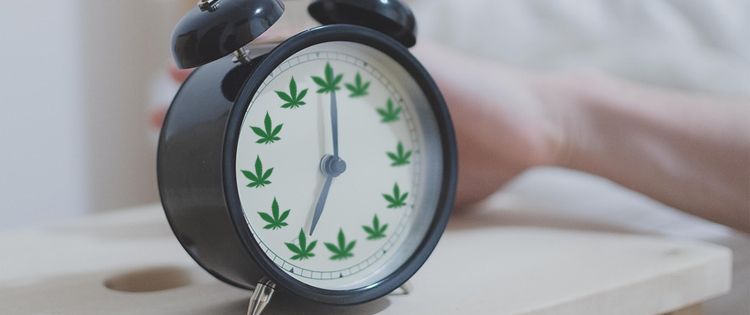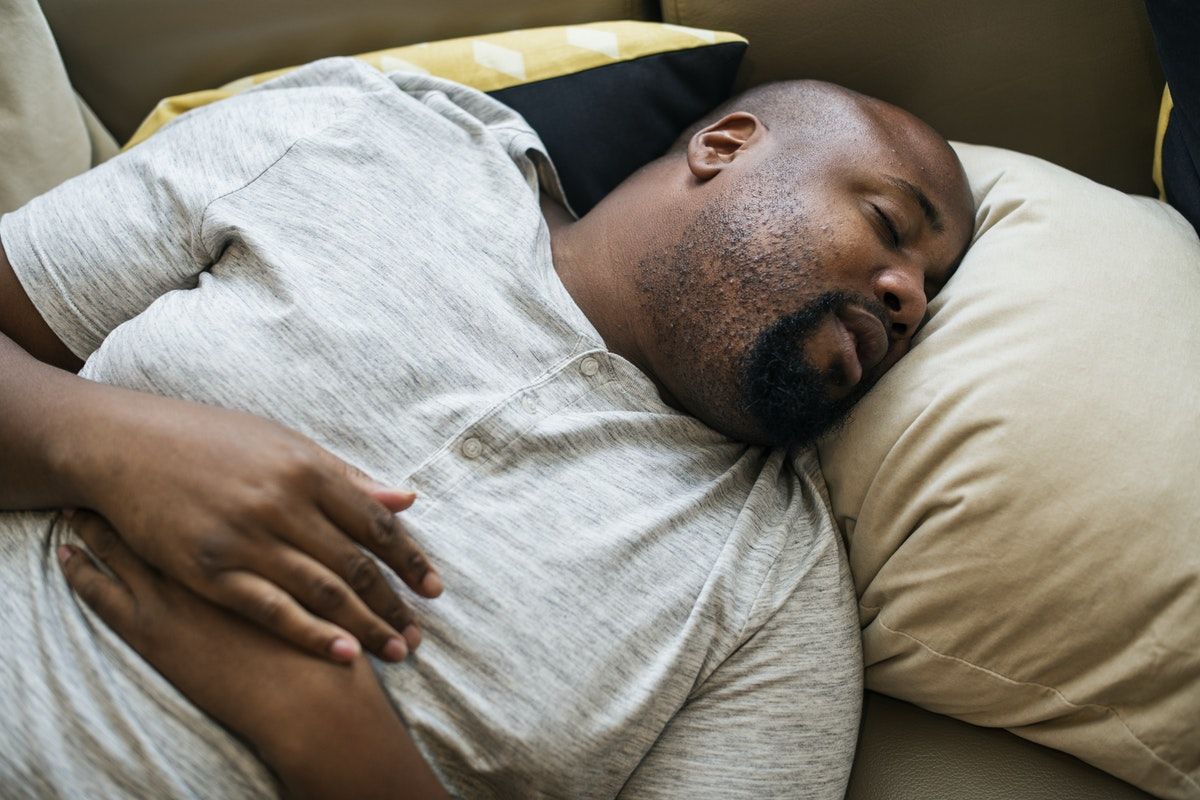Sleep is essential for optimal wellness. Missing out on the recommended seven to nine hours of shut-eye negatively affects your mood, learning ability, memory, and physical health. Worse, up to 35% of the U.S. population experiences insomnia at some point in their lives. Many people turn to cannabis for help because Delta-9 THC, the primary intoxicating compound, appears to have a clear connection to sleep.
Here we review how THC affects different sleep stages, what scientific studies tell us about THC’s influence on insomnia, and what products you can try to get a good night’s rest.
Deep Sleep vs. Dream Sleep
Not all sleep is the same. There are five different phases of sleep, each characterized by distinct patterns of brain activity:
● Sleep stages 1, 2, and REM (rapid eye movement) consist of light sleep.
● Stages 3 and 4 comprise deep sleep, which should take up about 13% to 23% of sleep in healthy adults.
● REM sleep (stage 5) happens in multiple sessions between the other stages, starting about 90 minutes into rest. REM is when dreaming occurs and takes up about 20% to 25% of sleep on average.
Why deep sleep is so important
All sleep cycles are important, but deep sleep is essential for feeling rested and healthy. Deep sleep is when your body slows down to focus on repairing its damaged cells. Many crucial functions take place in the mind and body during deep sleep:
● Memories consolidate
● We process learning and emotions
● Physical recovery occurs
● Blood sugar levels and metabolism balance out
● Immune system energizes
● The brain detoxifies
Deep sleep is vital for cognitive function and memory and also plays a role in motor skills and replenishing energy.
How Does Delta-9 THC Affect Sleep and its Cycles?
Delta-9 THC is a major cannabinoid in the cannabis plant linked to improved sleep quality. THC’s sleep-promoting effects result from its binding and interaction with cannabinoid receptors in the brain, which send messages to increase adenosine levels (a chemical that promotes sleep) and suppress the brain’s arousal system. This combination can help you drift away into a restful slumber.
1. Helps you fall asleep faster
In general, cannabis users say high-THC products make them drowsy. That’s because reports suggest that THC decreases sleep latency, helping you fall asleep faster.
2. Increases deep sleep cycle
A study in the Sleep Medicine Reviews Journal found that cannabis flower and orally administered THC increased the time spent in stage 4 deep sleep, the most critical stage for health that helps us wake up feeling refreshed.
3. Decreases REM sleep cycle
The same Sleep Medicine study showed that THC also decreases the time spent in REM sleep. Reducing REM sleep can be positive for some people, such as those with PTSD because it suppresses nightmares. Additionally, higher amounts of REM sleep is linked to depression in some cases, which is why antidepressants often suppress this cycle.
At the same time, REM sleep also has essential health benefits. Experts believe that dreaming helps you process emotions and solidify specific memories, so suppressing REM over the long term is not ideal.
4. Best for short-term use
Health experts generally do not recommend using sleep aids, including Delta-9 THC, on a long-term basis. This is because you can develop a tolerance and may need to take more to obtain the same results, which can adversely affect sleep in the long run.

What Does the Research Say About Delta-9 THC?
Modern science confirms what people have experienced since ancient times—THC has sedative effects that can make it easier for you to fall asleep.
● Helps with sleep disorders: Insomnia and sleep disorders are among the most common conditions for using cannabis. In addition, emerging evidence suggests that THC may improve breathing during sleep, making it an option for treating obstructive sleep apnea.
● Relieves conditions that hinder sleep: Among people who use cannabis for medical reasons, 85% say it improves their sleep. That’s because THC benefits people with conditions that interfere with sleep, such as chronic pain, post-traumatic stress disorder (PTSD), multiple sclerosis, and restless legs syndrome.
● Reduces dependence on other sleep aids: Surveys of medical cannabis patients found that most decreased their use of pharmaceutical sleep drugs due to THC’s efficacy. For example, in one study, 39% of patients tapered or completely discontinued prescription use, and 71% reported improved sleep conditions.
Does THC-O Also Help With Sleep and Insomnia?
When looking for products to help with sleep issues, you might wonder whether THC-O or Delta-9 works best. After all, THC-O is federally legal and sold nationwide, so you might have easier access to these products.
There isn’t much specific research on how THC-O affects insomnia and sleep disorders. THC-O is often slightly more energizing and uplifting than Delta-0. However, specific THC-O formulations can work better for sleep, such as those with indica-dominant terpene profiles or that combine THC-O with Delta-8. Because it has a similar chemical structure to Delta-9 THC, THC-O also seems to affect receptors that promote relaxation, which can help combat stress, anxiety, and muscle tension that inhibit restful sleep.
Best THC Product Types and Dosages for Insomnia
There are numerous ways to consume Delta-9 THC, including flower, oils, tinctures, and edibles. All product types will work, but edibles last the longest—often 12 hours or more—which may be best for sleep aid. For dosage, keep the following in mind:
● Edibles are more potent, so if you’re a newcomer, consider starting with lower doses of 2 to 3 mg. If you still have trouble falling and staying asleep, increase the amount to 5 to 10 mg on subsequent nights.
● For other product types, keep the dosage low at first. A few puffs of a vape pen or a tincture dropper can ease most sleepless nights.
● You might need heavier doses for noticeable effects if you regularly consume THC or suffer from chronic pain and insomnia. In these cases, edibles in the 20 to 35 mg range or concentrated cannabis oil can help you stay asleep.
The Bottom Line
Research indicates Delta-9 THC will help you fall asleep faster and stay asleep longer. In addition, studies show this compound increases deep sleep, the stage essential for feeling rested where our bodies heal. THC is an effective solution for bouts of insomnia, but you should consider taking breaks to avoid tolerance and allow REM sleep to occur.
- The Ultimate Guide to Delta 8 Disposable Vapes: What You Need to Know - March 8, 2024
- The Environmental Impact of CBD Production - August 28, 2023
- Cannabis In Thailand: A Green Revolution - August 15, 2023


